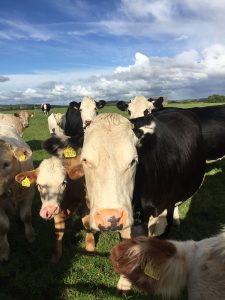For all of us, students to pensioners: it’s easy to get lost in the never-ending drama of Brexit. The subject has become such a well discussed and debated issue that many of us can’t bear to hear about it for a second longer. For some, it’s a non-worry. But for others? It’s a concern, no matter which outcome or ‘deal’ we are presented with on March 29th. Throughout many businesses in Cornwall, leaving the EU has developed into a stressful topic. Whether you voted Leave or Remain (or didn’t vote at all) back in 2016’s referendum, that isn’t really the concern here. Preparation is the word on everyone’s tongue, but how does anyone prepare for something when you don’t know for certain the outcome?
In Cornwall, 10, 701 people are directly employed in agriculture, with the economy of the county remaining largely dependent on farming, closely followed by tourism. Cornwall is one of the four UK areas that qualifies for poverty-related grants from the EU’s ‘European Social Fund’. Objective One is the name given to the funding from the European Union, which, when it first began back in the early 2000’s was said to have largely supported a developing food and farming industry. However despite this, a report in 2015 found European Union funding failed to create an expected 10,000 new jobs in Cornwall, creating only 3557.
With this in mind, farming becomes an important part of the Brexit discussion. Cornwall Young Farmers club is
a group of around 700 people aged 10-26, almost all of the next generation of Cornwall’s farmers attend the weekly group meetings and activities held different clubs around the county. Interestingly, not all young farmers have the same opinions on Brexit, which becomes clear as we talk to young farmers about their views on Brexit.

Cows on Farm in Bodmin area
Will* a young dairy farmer from Cornwall describes being most worried about a bad deal. Although the voted leave, he says the only thing a farm can do it try and prepare the business for the worst. Likewise, young beef farmer Tom* also voted leave. He is most worried about a lack of government support during the transition, and says that to prepare his farm has increased heard numbers. He explains, “Finding out which deal would be best for our farm was not a simple process.”
A young farmer in the Bodmin area of Cornwall voted Remain. His main worry: The importation or cheaper food products undercutting British Produce even if it’s not produced to the same standard. He describes the best preparation being to constantly monitor costings and improve:
“After hearing a talk from Minette Batters from NFU she made it clear that a no deal would be in no farmers best interests as it could potentially lead to cheaper produce being imported under WTO tariffs. (If our government were to allow it.) this could have negative consequences in the short term, however in the long term a no deal scenario may not be so detrimental- as we could shape outperform future trade deals. My fear is agricultural goods will be the trade off as many countries see the UK as an excellent market to export to. Although a second referendum (and likely remain vote) would reduce the risk to our business, as we would essentially carry on as we are now, I don’t think this will be good in the long run as currently farming (particularly land ownership) is old fashioned compared to other parts of the world, with little encouragement for new entrants. Hence the ageing population of farmers, most of which are secure receiving their single farm payment.)
The best scenario would be to agree terms to leave the EU that’s allows us a sufficient three year transition period and trade of goods as they currently stand. Whether this deal is possible is another question!”
*Names have been changed
